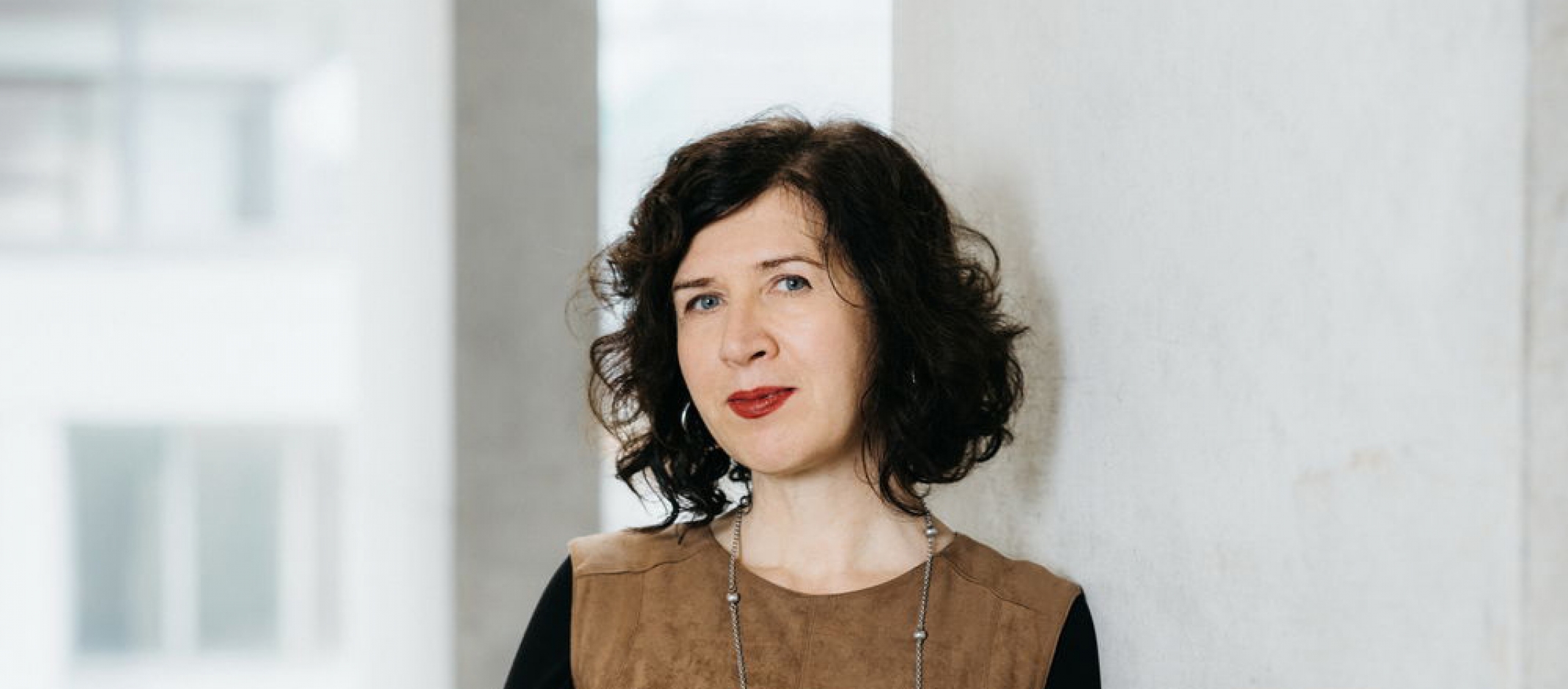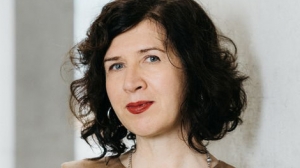Doors open for dialogue

For a few very important events, many people can say exactly where they were when they first heard about them. Juliane Vogel is no exception: "And then I got the phone call. I remember it was a Thursday, and I was here in my office." The call was from the German Research Foundation, informing her that she had been chosen for the 2020 Leibniz Prize. Her surprise was so great that she was a little beside herself at first: "I wasn’t linking this news to myself at all."
What happened during the next few days was unlike anything she had experienced until then. Many people wrote emails congratulating her, even people she hadn’t seen for a long time – or whom she didn’t know at all. Juliane Vogel also received congratulations from politicians. At the Department of Literature, everyone was, of course, overjoyed. The atmosphere was fantastic. "It simply felt good," the award winner remembers.
Last but not least, receving the Leibniz Prize, the most important German research prize, also had consequences for how she sees herself. "Personally, it reassured me. I had the feeling that this kind of recognition cannot easily be undone. Since then, the crises in my own work are no longer quite as existential." A few months earlier, Juliane Vogel, professor of modern German literature and literary theory, had already been able to secure generous funding from the Swiss NOMIS Foundation for the research project "Traveling Forms". Alongside the natural sciences, the foundation now also funds projects in cultural studies and social sciences.
The research initiative "Historical Poetics and Theory of Form" investigates form-building processes. The historical starting point is the "poetics of rules", or prescriptive poetics, of the pre-modern era, i.e., form compendiums that prescribe exactly how a poetic form is to be composed. Such compendiums were further elaborated in the early modern period. However, the research initiative is also devoted to modern theories of form. It was made possible by the Gottfried Wilhelm Leibniz Prize, which is endowed with 2.5 million euros.
The interdisciplinary project "Traveling Forms" combines literary and anthropological perspectives on the mobility of cultural forms in four sub-projects. The project examines the past as well as the present. Additionally, the fundamental concept of form in the context of cultural studies is being further developed with regard to the mobility of forms. The Swiss NOMIS Foundation is funding the project with roughly 1.2 million euros.
https://youtu.be/ycHILQQdGjE?si=y3g_M5YjdfpXL9-sPortrait of 2020 Gottfried Wilhelm Leibniz Prize winner Juliane Vogel
Resonating research
Juliane Vogel would like to link the research initiative "Historical Poetics and Theory of Form", funded by the Leibniz Prize, and the project "Traveling Forms" in joint research focusing on the topic of "form": "I’ve noticed that this kind of research really resonates with people. We aim to provide impulses that go beyond the University of Konstanz." She describes this approach to form, which has unfortunately taken a back seat in recent years, as a "complementary movement" to the field of cultural studies:
"Cultural communication cannot be adequately described without taking form into account. It makes a difference whether I communicate something in the form of a treatise, a tweet or an epic poem."
Juliane Vogel
The importance of expertise in the area of form for research were a key part of discussions at the conference "Liquid Forms" which was organized by the research initiative and took place from 12-14 October 2023. It explored, among other things, the question of how fluid concepts can be formed into concrete shapes. There are, for example, striking parallels between the physical regulation of rivers and poetic verse regulation around the year 1800. A conference discussing the poetics of rules and poetic rules is planned for the end of 2024. Yet, awards like the Leibniz Prize do not just provide the necessary funds for conducting academic conferences. The reputation that comes with it also opens many doors.
Both the research initiative "Historical Poetics and Theory of Form" and the project "Traveling Forms" are interdisciplinary. The close connection and interplay between aesthetic forms and social forms offer great potential for fruitful exchange with colleagues in the social sciences. Researchers from the fields of anthropology and sociology are also involved, and for Juliane Vogel, law represents another important point of contact. Constitutions, sets of rules and norm-building processes in general are parallels that provide impulses for her research on the regulation of form-building processes in literature. "I carry out my research as someone who is learning, not as someone who already knows. That’s important," she says.
An exciting discovery
Juliane Vogel is also interested in fostering discussions with other disciplines that are not usually the closest points of contact for literary scholars. For this, the NOMIS Foundation, which until recently mainly funded projects in the natural sciences, also provides stimuli. At meetings hosted by the foundation, Juliane Vogel concluded that one can also learn something about form-building from lectures on cell formation processes in the embryonic stage.
"We (humanities scholars) were utterly amazed at how well we understood these organic-biological processes. We know about comparable processes in cultural studies and philosophy. The terminology was perfectly familiar to us and even highlighted certain issues for me that we also encounter in our field."
Juliane Vogel
For instance, how bodies are formed, how axes help to stabilize them, how symmetries are created, and how forms are differentiated through division and polarization. Juliane Vogel explains: "Of course, we’re not planning to use biological terms in our argumentation, but looking at this type of form-building gives us inspiration for our work. For me, some of the models for organisms and forms used in the natural sciences prove to be extremely interesting. Now a conversation between the NOMIS scientists and scholars about form in the humanities and the natural sciences is in planning. Just now, we are preparing for a meeting which will bring these concepts of form into contact".
Great opportunities
For Juliane Vogel, the focus on form represents a great opportunity: the possibility of using the increased attention from the Leibniz Prize to spotlight the importance of form and forms in research once again. Thanks to the funds from the Leibniz Prize, she was able to create academic positions that not only support her team in research and teaching but also bring added value to the Department of Literature.
It is particularly important to her that teaching benefits from this. "I am well aware that the kind of research I undertake comes at a cost," she says with regard to her teaching duties. "I’m glad that, by creating new positions, I can expand and enrich the courses the department offers." Konstanz University Press also benefits from her prize money. The publishing house uses it for translations, thereby increasing the programme’s international reach. Juliane Vogel believes that one should not just use funding for oneself. This attitude is also made possible by generous prize money like that from the German Research Foundation and the NOMIS Foundation.
Juliane Vogel is professor of modern German literature and literary theory at the University of Konstanz. Juliane Vogel is one of Germany’s most important researchers in the field of dramatic theory. Her interdisciplinary work linking literary, cultural and technical aspects has had a profound impact on research in German-speaking countries and North America.
Header image: Ines Janas

